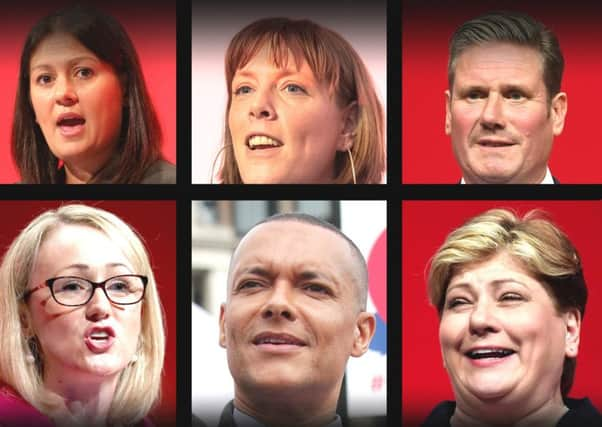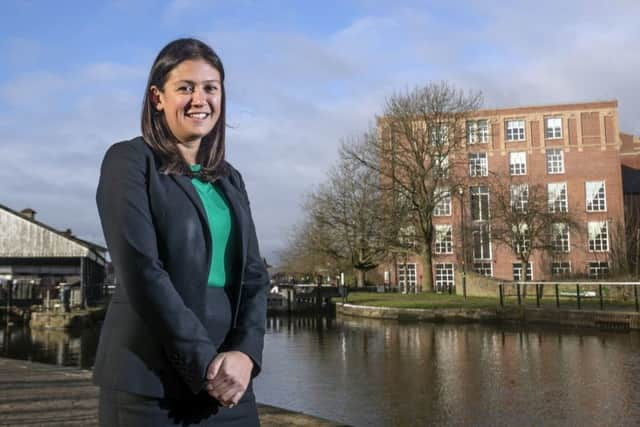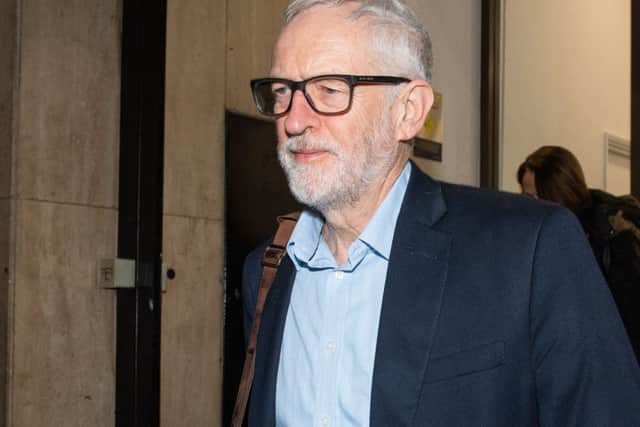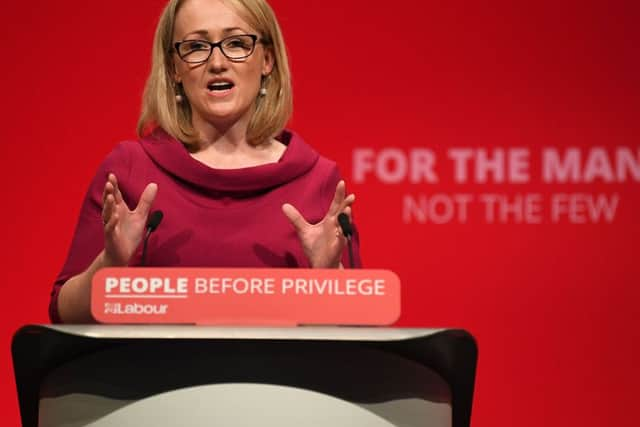High time that Labour elects first female leader – Jayne Dowle


It’s precisely this kind of navel-gazing which has got the party into the mess it is in, casting once-unshakeable voters adrift and leaving Boris Johnson’s government to run rampant without a credible Opposition until at least April.


Advertisement
Hide AdAdvertisement
Hide AdSorry to sound harsh, but like many whose natural inclination would be to support Labour, my patience has run thin. However, as someone (almost) once said, this is not a time to go back, but to look forward. Six candidates – Jess Phillips, Rebecca Long-Bailey, Emily Thornberry, Lisa Nandy, Sir Keir Starmer and Clive Lewis – have now declared their official intention to run for leadership.
Here is an opportunity not just for the tarnished party to shine a huge searchlight into the darkest and most questionable corners of its modus operandi, but also for it to prove once and for all that it believes in equality (it is the only major party not to have had a permanent female leader).


Advertisement
Hide AdAdvertisement
Hide AdAnd that means equality in its broadest sense. Positive discrimination is already used by the Labour Party in council elections, where safe seats may be earmarked for women to win. It recognises that it needs to even up representation and this leadership contest brings the issue right into the open.
I’ve never been a supporter of tokenism. I would always say that in any selection process, the best candidate should win. Yet we cannot ignore the fact that two-thirds of the declared contenders are women.
With these odds, there is a very strong possibility that the Labour Party may end up with a female leader for the first time in its history. This is significant in itself, and not just because it would provide a very interesting counterpoint to boisterous Boris at Prime Minister’s Questions and send a strong message to the more antediluvian trade unionists who still think a woman’s place is taking notes and making tea.
More importantly, when it comes to the things that Labour could be really good at, women have more experience and understanding. It’s us who (generally) chase the doctors’ and hospital appointments, ring the council to sort out problems, deal with organising childcare and take the lead when it comes to looking after older and vulnerable family members.


Advertisement
Hide AdAdvertisement
Hide AdWe also (usually) run the household budget and at least write the shopping lists, so we know how much everything costs and can tell you to the penny where to buy it cheapest.
And whilst I’m not entirely familiar with the domestic arrangements of every single Labour Party leadership candidate, I can safely say that, mostly, our concerns tend to be shared.
Too much of recent politics has focussed on Brexit; too little attention has been paid to the actual operation of the NHS, social care, education and all the things that make the wheels of society turn.
Also, dare I say, too many decisions have been taken by professional men of a certain background and class whose idea of domestic responsibility is to drop their shirts off at the dry cleaner for laundering and pressing.
Advertisement
Hide AdAdvertisement
Hide AdI’m not arguing that we must make the business of party politics entirely parochial. There are huge philosophical matters to be thrashed out in the coming months. And to turn this leadership contest into a straight female/male battle would be reductive and simplistic; Labour deserves better than that.
However, I am arguing that the life experience of the female candidates for Labour leadership does suggest that they might be well-equipped to understand from first-hand the struggles that ordinary people have to face. It’s the sum total of their lives, which happen to be female ones.
For example, before she became MP for Birmingham Yardley, Jess Phillips managed women’s refuges. Emily Thornberry, who represents Islington South and Finsbury, grew up on free school meals and famously, tells of how her family had to have their cats euthanised to save money.
Sir Keir Starmer, an authoritative figure no doubt, was Director of Public Prosecutions before entering politics and Clive Lewis was a journalist.
Advertisement
Hide AdAdvertisement
Hide AdNothing wrong with either of these professions, but politics is evolving and bringing forth a new generation of MPs whose life experience stretches further and deeper than a university degree and a suited and booted career. When they’ve settled into Westminster, they will expect their leaders – and this applies to all parties – to reflect this and recognise their concerns and motivations. Without this two-way street, respect could wear remarkably thin – and quickly. And no leader wants that, as Jeremy Corbyn knows to his cost.